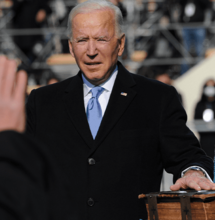Why You Should Care about the CARERS Act of 2015

Under the CARERS Act, weed would be downgraded to Schedule II, decreasing penalties, allowing states autonomy and promoting research on the plant.
Under the CARERS Act, weed would be downgraded to Schedule II, decreasing penalties, allowing states autonomy and promoting research on the plant.
Over the past few decades, it has become painfully obvious that the War on Drugs in America would never come anywhere close to ending without the cooperation of the federal government - namely, that Cannabis must be rescheduled from Schedule I to Schedule II, effectively ending the harsh penalties imposed for weed crimes. A promising piece of legislation called the CARERS Act, a bipartisan, bicameral effort, could lead to the legalization of medical marijuana across the country by forcing the rescheduling of Cannabis, among other changes. The "Compassionate Access, Research Expansion, and Respect States Act of 2015" is intended to allow states the freedom to determine their own Cannabis policies without the intervention of the federal government.
|
The proposed legislation would allow states to set their own Cannabis policies without fear of federal intrusion [Credit: Flickr/Laurie Avocado] |
What Would the CARERS Act of 2015 Accomplish?
Both the House and Senate bills are intended "To extend the principle of federalism to State drug policy, provide access to medical marijuana, and enable research into the medicinal properties of marijuana" via various interventions into existing drug policy, including redefining cannabidiol (CBD), clarifying banking issues, promoting and allowing Cannabis research and amending legislation regarding the prescribing of medical marijuana to veterans. This will be accomplished by amending the Controlled Substances Act (21 U.S.C. 903), under which Cannabis is classified as a Schedule I drug, defined as offering no medical benefit or value while additionally posing great risk to the health of our society.
In a reflection of increasing acceptance towards Cannabis legalization, many senators and representatives have come forward to present a ceasefire in the War on Drugs. Supporters of the CARERS Act of 2015 are championing the idea of 'de-scheduling' Cannabis from Schedule I to Schedule II. The legislation would finally allow states the freedom to determine and implement their own medical marijuana policies, leading to a fluency in the Cannabis industry and relieving the fears of those worried about the consequences of contradictory federal policies. Equally importantly, for the first time in decades, Cannabis would be registered as a useful and legitimate drug at a federal level. Certain wording also intends to clarify and legalize the financial aspects (i.e., banking concerns) of doing business with money amassed from the sale of a controlled substance. Finally, doctors would be permitted to prescribe Cannabis as medicine for those treated through Veterans Affairs.
|
This indica-dominant plant mostly produces cannabidiol or CBD, access to which would improve under the new law |
Accord between Senate and House
It is no secret that Cannabis legalization is currently enjoying unprecedented support among American voters. Whether a user, producer or just a libertarian who believes in as little government intervention as possible, many folks have slowly begun to realize how permanently damaging and expensive the War on Drugs has been. In a nod to the shift of public opinion towards legalization, the stance of many in both the House of Representatives and Senate in the United States reflect a microcosm of current American views.
A bipartisan group in the Senate announced Bill S. 683 on March 10, 2015, headed by Senator Cory Booker [D-NJ]. In addition to Senator Booker, original cosponsors of S. 683 include Kirsten E. Gillibrand [D-NY] and Rand Paul [R-KY], with additional support for the bill coming from Senators Dean Heller [R-NV] and Barbara Boxer [D-CA].
Likewise, a bipartisan conglomerate introduced the House's companion bill, H.R. 1538 on March 23, 2015. Representatives Don Young [R-AK-At Large] and Steve Cohen [D-TN-9] are supported by a small legion of representatives from various states across the country.
Cosponsors of H.R. 1538 include:
Rep. Eleanor Holmes Norton [D-DC-At Large]
Rep. Zoe Lofgren [D-CA-19]
Rep. Jerrold Nadler [D-NY-10]
Rep. John, Jr. Conyers [D-MI-13]
Rep. Dana Rohrabacher [R-CA-48]
Rep. Duncan D. Hunter [R-CA-50]
Rep. Richard L. Hanna [R-NY-22]
Rep. Joseph J. Heck [R-NV-3]
Rep. Justin Amash [R-MI-3]
Rep. Donald S. Beyer, Jr. [D-VA-8]
Rep. Earl Blumenauer[D-OR-3]
Rep. Tom McClintock [R-CA-4]
Rep. Suzan K. DelBene [D-WA-1]
Rep. Walter B. Jones, Jr. [R-NC-3]
Rep. Ed Perlmutter [D-CO-7]
Congressman Young's press release reveals that the bill would accomplish the following:
- Allow states to set their own medical marijuana policies and eliminate federal prosecution of patients, providers, and businesses in states with medical marijuana programs;
- Reschedule marijuana from Schedule I to Schedule II, recognizing legitimate medical use;
- Allow for greater access to cannabidiol (CBD);
- Allow access to banking services for marijuana-related businesses that are operating pursuant to state law;
- Allow VA doctors to recommend medical marijuana;
- Cut red tape and expand opportunities for research on marijuana.
|
The Department of Veterans Affairs would have legal permission to prescribe Cannabis for ailments such as PTSD if the CARERS Act passes |
Young's statement continues: "The topic of medical and recreational marijuana has always been an issue of states' rights for me, a position based upon a strong belief in the 10th Amendment and the principals of federalism established by our Founders," echoing the sentiments of many pro-pot medical activists lamenting the time and expense that is still currently exerted towards Cannabis arrests among producers, retailers and patients. This waste of resources is especially troubling, considering that many arrests and/or prosecutions take place in states that have adopted legal Cannabis in some form.
Although five states have legalized recreational weed and while medical Cannabis is currently legal in twenty-three states and the District of Columbia - not to mention the dozen or so states that recognize CBD (cannabidiol) oil as a legitimate medicine - marijuana remains illegal on a federal level.
"The CARERS Act aims to protect states that have legalized medical marijuana and allows them to properly enforce their own laws. My position aims to reaffirm the states' rights to determine the nature of criminal activity within their own jurisdictions, which I believe is critical for states to effectively legislate within their borders," said Congressman Don Young.
"Drug policy reform is long overdue, but I am pleased that today it is an issue that unites both Democrats and Republicans," said Congressman Steve Cohen. "The science has been in for a long time, and keeping marijuana on Schedule I - with heroin and LSD - is ludicrous. I am pleased to join with Congressman Don Young in introducing this important bill to bring the federal government in line with the science and the American people, respect states' rights, remove the threat of federal prosecution in states with medical marijuana, and help our citizens access the treatments they need."
It is important to note that the CARERS Act would not actually legalize medical Cannabis in any state but rather would force the federal government to respect individual states' rights to set their own medi-weed policies. The Act would also prevent federal law enforcement from prosecuting patients, doctors and caregivers in those states.
Buds and Banking under the CARERS Act
It is no secret within the Cannabis industry that making money is not necessarily the most difficult aspect of being a 'ganjapreneur', but rather locating someone who will accept and maintain the proceeds. Some pot shop owners are finding it difficult to convince banks and credit unions to do business with them - in spite of the shop owners following all industry protocol - due to the classification of Cannabis as a Schedule I drug.
Many banking by-laws exist regarding the definition of illicit funds and, due to the federal prohibition of weed, any profits from such businesses tend to be viewed by financial institutions as plain old drug money. The CARERS Act releases financial institutions from the liability associated with the Cannabis industry, clarifying that "A depository institution that provides financial services to a marijuana-related legitimate business shall not be subject to a criminal penalty under any Federal law solely for providing those services or for further investing any income derived from such services."
Additionally, protections for the client area also listed:
"A Federal banking regulator may not -
(1) terminate or limit the deposit insurance of a depository institution under the Federal Deposit Insurance Act (12 U.S.C. 1811 et seq.) or the Federal Credit Union Act (12 U.S.C. 1751 et seq.) solely because the depository institution provides or has provided financial services to a marijuana-related legitimate business;
(2) prohibit, penalize, or otherwise discourage a depository institution from providing financial services to a marijuana-related legitimate business;
(3) recommend, incentivize, or encourage a depository institution not to offer financial services to an individual, or to downgrade or cancel the financial services offered to an individual solely because -
(A) the individual is a manufacturer or producer of marijuana;
(B) the individual is the owner or operator of a marijuana-related legitimate business;
(C) the individual later becomes an owner or operator of a marijuana-related legitimate business; or
(D) the depository institution was not aware that the individual is the owner or operator of a marijuana-related legitimate business; or
(4) take any adverse or corrective supervisory action on a loan to an owner or operator of -
(A) a marijuana-related legitimate business solely because the owner or operator is a marijuana-related business; or
(B) real estate or equipment that is leased to a marijuana-related legitimate business solely because the owner or operator of the real estate or equipment leased the real estate or equipment to a marijuana-related business."
This verbiage protects not only the depository and/or lending institutions but also those in the weed industry, including those who work in pot shops, growers, manufacturers, retailers or anyone who works in a legitimate position in the Cannabis industry.



